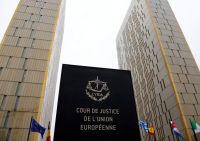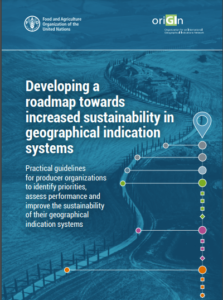
In October 2019, the Court of Appeal of Barcelona had referred a case to the CJEU regarding the interpretation of Article 103 of EU Regulation 1308/2013. The case concerns the use of “Champanillo” as a business name for restaurant services. While the Spanish Trademark Office had refused the registration of “Champanillo” as a trademark for catering services in class 43 on the basis, among others, of the evocation of the PDO Champagne and of the risk for consumers to associate such name with the PDO, the business name is still in use in Spain, together with a logo which strengthens the association with the PDO. As a result, the Comité Champagne had brought an action before the Court of Barcelona, on the basis of the evocation of the PDO and the unfair advantage taken from the designation’s reputation. In its judgement of 13 July 2018, the Court of Barcelona had dismissed all the actions. The Comité Champagne had then appealed such decision before the Court of Appeal of Barcelona.
In its judgment of 9 September 2021, the CJEU:
- Recalled that protected names under EU Regulation 1308/2013 offer a guarantee of quality due to their geographical provenance, with the aim of enabling agricultural operators to secure higher incomes in return for a genuine effort to improve quality, and of preventing improper use of those designations by third parties seeking to profit from the reputation which those products have acquired by their quality. As a result, the Court considered that an interpretation of Article 103(2)(b) of EU Regulation 1308/2013 that does not grant protection to a PDO where the disputed sign designates a service would be inconsistent with the broad scope granted to protected names. Likewise, such an interpretation would also prevent the protection objective from being fully attained, since the reputation of a product covered by a PDO is liable to be exploited also where the practice referred to in that provision concerns a service.
- Meanwhile, recalling the case law on evocation, the Court confirmed that the concept of evocation does not require that the product covered by the PDO and the product or service covered by the disputed name be identical or similar. Evocation is established where the use of a name creates, in the mind of an average European consumer who is reasonably well informed and reasonably observant and circumspect, a sufficiently clear and direct link between that name and the PDO. The existence of such a link can result from several aspects, in particular, the partial incorporation of the protected designation, the phonetic and visual relationship between the two names and the similarity resulting from it, and even in the absence of those aspects, from the conceptual similarity between the PDO and the name at issue or from a similarity between the products covered by that PDO and the products or services covered by that name. In the context of that assessment, it is for the Audiencia Provincial de Barcelona to take account of all the relevant aspects surrounding the use of the name at issue.
Over the years, the CJEU rulings (then reflected in the judgments of the national courts’ that had referred the cases), together with European Union Intellectual Property Office (EUIPO) practice and “Guidelines for examining European Union trademarks, have consolidated the depth/meaning/notion/concept of “evocation” in the EU. In the dedicated page of our website, you can find the “oriGIn paper on the protection of PDO, PGI and GIs against evocation in the EU regulations and case law”. This is an instrument for oriGIn and its members to promote a wider knowledge of evocation (and its depth) across the EU, as well as to make it known outside the EU, with the goal to encourage convergence at the international level.


